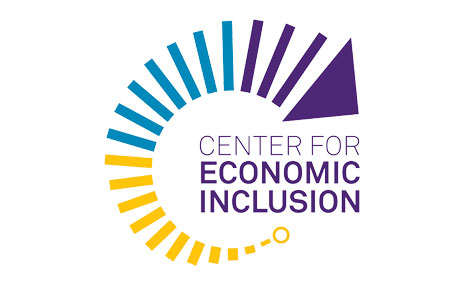
Our Economy Requires Changes to Education
November 22, 2022
By Suzanne P. Kelly, Chief of Staff, Center for Economic Inclusion
Research abounds on the pervasiveness of disparities and inequities in urban public education systems. The impacts of this on Black, Indigenous, Hispanic, and Asian [Black and Brown) youth are compounded by continuing inequities post high school that result in ongoing income and wealth disparities and under-valuation and utilization of diverse talent in our region. The inequities range from greater access to high quality teachers for white students, lower referrals to AP and honors courses for Black and Brown students, while conversely disproportionately high out-of-classroom time due to suspension, expulsion, and office referrals. Those students who are resilient enough to matriculate through 12th grade, often perform significantly lower on standardized post-secondary entrance exams and often have reading and math scores below grade level.
A 2022 snapshot of Black student achievement in Minnesota published by the Federal Reserve Bank of Minneapolis, found that “Minnesota’s public education system consistently underserves Black and African American students. “And while many Minnesotans find such statistics alarming, they often fail to connect persistent opportunity gaps experienced by children of color to a lifetime of economic disparities for the individual and for our overall regional economic health.
According to the Federal Reserve, “The systemic racism that prevents many of Minnesota’s children from getting a high-quality education ultimately has economic implications: if children aren’t given the tools to reach their full potential, the workforce of the future will be weaker as a result.”
The Center for Economic Inclusion understands the interconnectedness of educational attainment and the future of Minnesota’s economic growth and competitiveness. As such, the Center partners with racial and economic justice organizations, policy makers, public and private sector employers, workers, and communities to address the conditions of systems change, including policies, practices, resources, power, relationships, and mental models. An example of this work is the Center’s 2022 policy agenda which included a focus on equitable postsecondary readiness and attainment. That agenda aligned to several recommendations in Ramsey County’s Economic Competitiveness and Inclusion Plan (2021). Among the report’s findings - “Closing the education gap between White and Black, Latinx, Asian, and Indigenous County residents would mean an additional 21,518 workers with a BA+, earning an additional $124,475,884 per year.”
Research from Belfield (2021) found that for each cohort of minority students aged 18, the social burden from lower human/social capital is between $42-$92 billion in lost economic outcomes over the lifetime. The case is clear that to have true racial equity and inclusion in our local, state, and regional economies, educational inequities and disparities in our public education systems must be addressed.
Business leaders are uniquely positioned to be part of the solution. One action is to vote for local school board leaders that are committed to advancing data-informed, racially equitable policies, practices and investments to eliminate disparities. Another action is to support and partner with schools in offering work-based learning experiences and access to professional networks that support equitable pursuit of career pathways to family-sustaining jobs. Educational institutions must be held accountable for preparing all students, and they need partnerships with businesses to support development and eventual hiring and retention of diverse talent. This partnership is critical to the economic well-being and competitiveness of our region and state.
Sources
Belfield, C. (2021). The economic burden of racism from the U.S. education system. National Education Policy Center. Retrieved from https://nepc.colorado.edu/sites/default/files/publications/PB%20Belfield_1.pdf
Federal Reserve Bank. (2022, March 24). Educational outcomes and Minnesota’s economy: Black and African American student snapshot. Federal Reserve Bank of Minneapolis. https://www.minneapolisfed.org/article/2022/educational-outcomes-and-minnesotas-economy-black-and-african-american-student-snapshot
Ramsey County. (2021, March 16). Ramsey County Economic Competitiveness and Inclusion Plan (final report). https://www.ramseycounty.us/sites/default/files/Departments/Community%20%26%20Economic%20Development/Ramsey%20Final%20Report_Pages%2016mar21.pdf
About the Center for Economic Inclusion
The Center for Economic Inclusion is committed to closing racial employment, income, and wealth gaps, and building racially inclusive and equitable regional economies. Founded in 2017, the Center is the nation’s first Black woman-owned and led organization dedicated exclusively to strengthening public- and private-sector civic infrastructures and collective capacity to disrupt systems and influence market forces while advancing an inclusive economy. Through the Center’s Employer Inclusivity and Inclusive Growth Consulting Services, the Center partners with employers, like Ramsey County, who also seek to increase competitiveness and profitability by centering racial equity, inclusion, and belonging. Click here to learn more.
